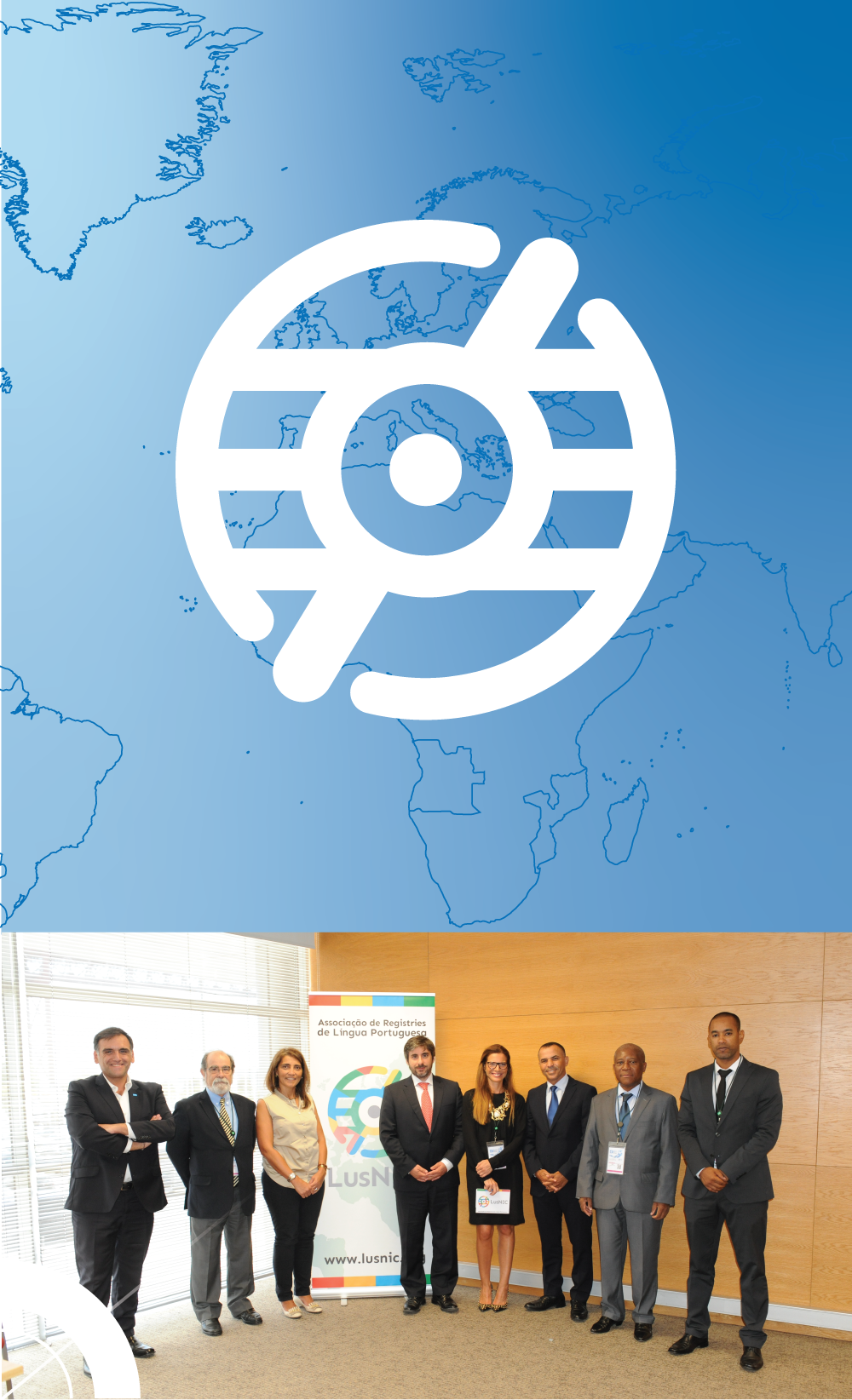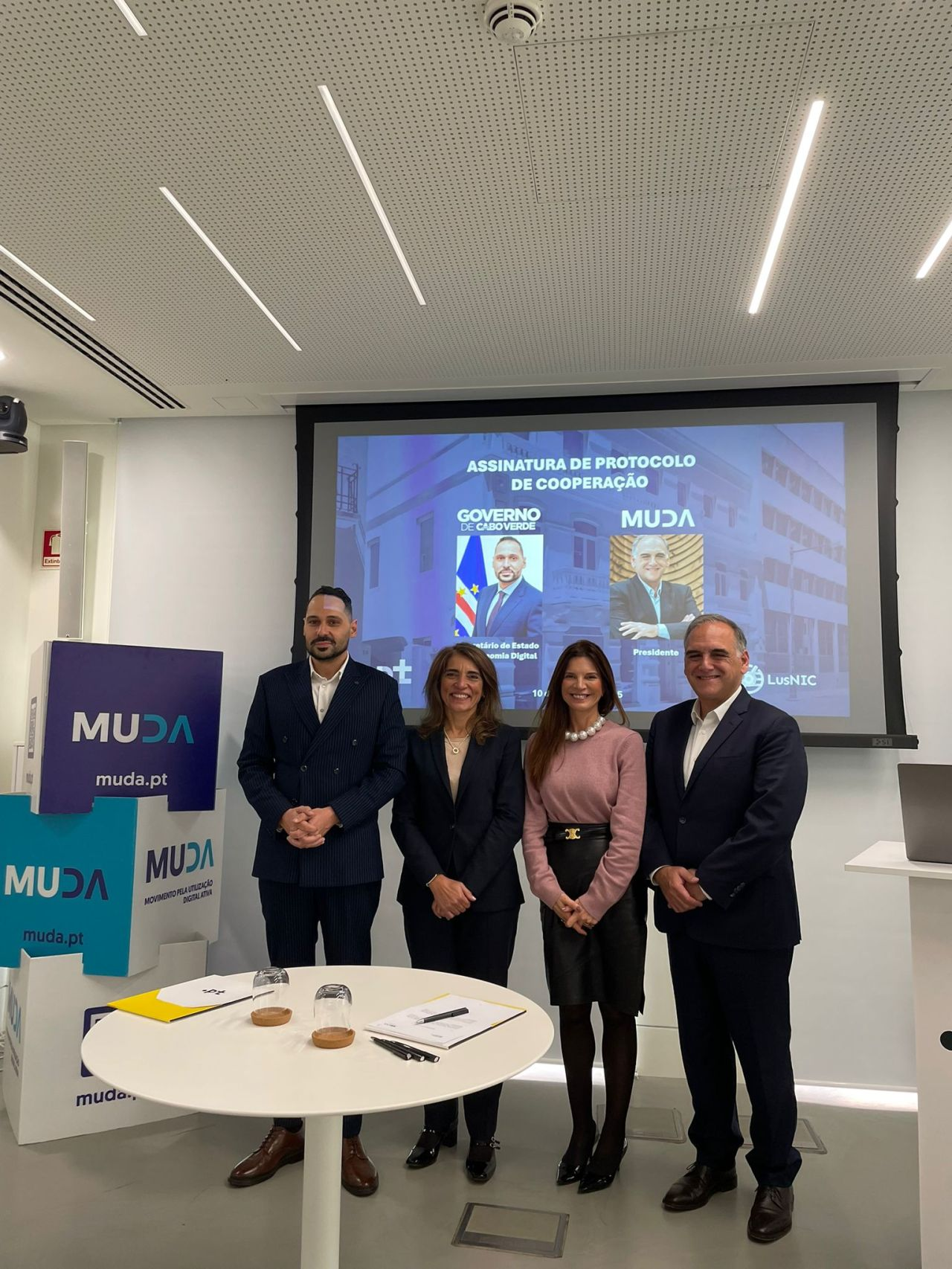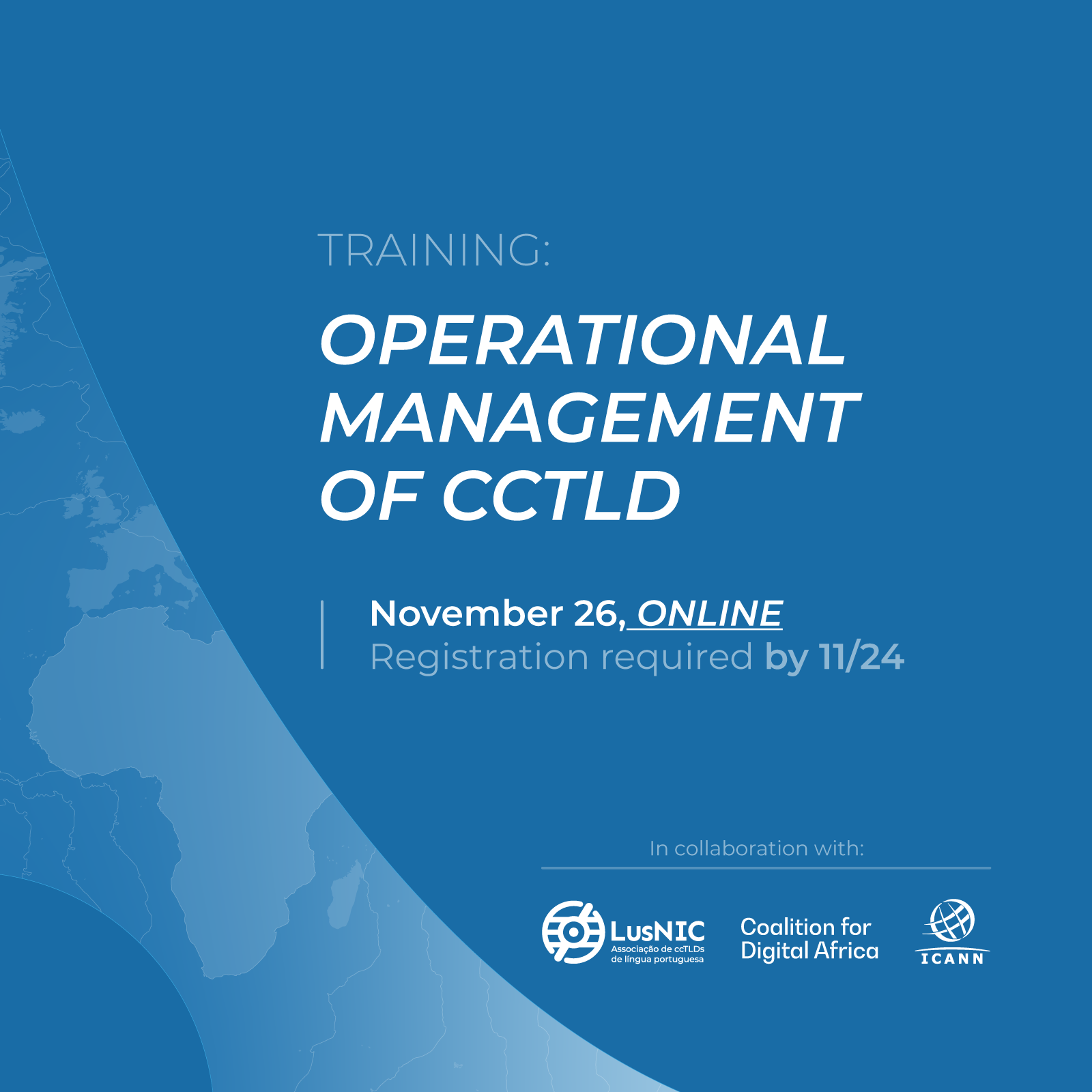LusNIC – Portuguese Language Registries Association was formally constituted today, on e-Show Portugal, integrating for now Brazil, Cape Verde, Guinea-Bissau, Portugal and São Tomé and Príncipe. Angola has also formally expressed interest in joining the Association.
A meeting of common desires and needs led the registries of the Portuguese language top-level domains .br, .cv, .gw, .pt and .st to reach an agreement for the formal constitution of LusNIC, as an association governed by private law with the object of cooperation multilateral institutional framework between them within the scope of their areas of intervention.
The Portuguese language has approximately 280 million speakers, Portuguese is the 5th most spoken language in the world and the most spoken in the southern hemisphere. Recent data reveal that Portuguese is already the fifth most used language on the Internet and on social networks – Facebook and Twitter – it is the third; there are around 32 million Portuguese speakers outside their countries of origin.
There are around 260 ccTLDs worldwide. CENTR is the European organization, of which .pt is a member, which today brings together 52 of the registries in Europe. It is noted the existence of organizations such as the Latin American and Caribbean Association of ccTLDs (LACTLD), the Asia Pacific Top Level Domain Name Association (APTLD) and the African Top Level Domain Association (AfTLD) with an identical regional nature, where cooperation and development of a common objective is already pursued on the basis of a common geographic location.
The circumstances described above led to the sedimentation of the idea of creating an association of Portuguese-speaking registries, whose central mission will be focused on the following general principles:
• Cooperate and share knowledge in the areas of intervention of the ccTLDs in technical and security matters, legal matters, promotion and dissemination and development of common policies;
• Undertake joint actions to boost the sustained growth of Portuguese-speaking top-level domains;
• Promote and collaborate in defending the interests of Portuguese-speaking ccTLDs;
• Promoting the use of the Portuguese language and content on the Internet.




